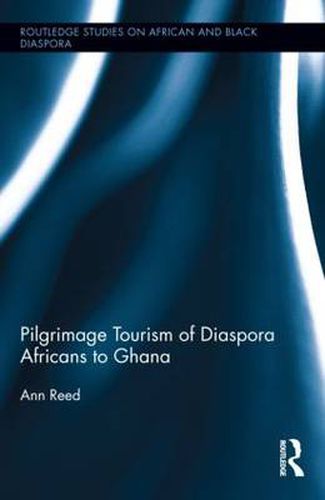Readings Newsletter
Become a Readings Member to make your shopping experience even easier.
Sign in or sign up for free!
You’re not far away from qualifying for FREE standard shipping within Australia
You’ve qualified for FREE standard shipping within Australia
The cart is loading…






This ethnography critically analyzes the travel of diaspora Africans to Ghana by considering its cultural and political economic meanings for diasporan visitors, Ghanaian tourism stakeholders, and everyday Ghanaians. Since the 1990s, the Ghanaian state has aggressively tried to attract African Americans and Afro Caribbeans to its slavery heritage sites and Pan-African festivals as a means for advancing economic development through tourism. At the same time, diaspora African groups have made pilgrimages to Ghana in order to re-connect to a perceived homeland and fulfill personal quests of reclaiming an African identity. Ann Reed shows how these goals are not necessarily compatible and result in cultural misunderstandings that question the idea of one ‘African family.’ Basing her study on long-term ethnographic research, Reed incorporates participant observation of guided tours at Cape Coast and Elmina castles, PANAFEST (Pan-African Historical Theatre Festival) and Emancipation Day events, as well as surveys and interviews with visitors, tourism stakeholders, and everyday Ghanaians residing near heritage sites. In reflecting on the tensions inherent in the project of casting Ghana as a homeland center for diaspora African pilgrim tourists, Reed shows how slavery heritage sites and Pan-African festivals serve as the backdrop for promoting contemporary political messages through remembering the slave trade and colonialism. The wider implications of this study relate not only to the ways in which memory is invoked in the present for particular cultural or political-economic purposes, but also examine the motivations of travel by other diasporic groups to homeland centers and their welcome there.
$9.00 standard shipping within Australia
FREE standard shipping within Australia for orders over $100.00
Express & International shipping calculated at checkout
This ethnography critically analyzes the travel of diaspora Africans to Ghana by considering its cultural and political economic meanings for diasporan visitors, Ghanaian tourism stakeholders, and everyday Ghanaians. Since the 1990s, the Ghanaian state has aggressively tried to attract African Americans and Afro Caribbeans to its slavery heritage sites and Pan-African festivals as a means for advancing economic development through tourism. At the same time, diaspora African groups have made pilgrimages to Ghana in order to re-connect to a perceived homeland and fulfill personal quests of reclaiming an African identity. Ann Reed shows how these goals are not necessarily compatible and result in cultural misunderstandings that question the idea of one ‘African family.’ Basing her study on long-term ethnographic research, Reed incorporates participant observation of guided tours at Cape Coast and Elmina castles, PANAFEST (Pan-African Historical Theatre Festival) and Emancipation Day events, as well as surveys and interviews with visitors, tourism stakeholders, and everyday Ghanaians residing near heritage sites. In reflecting on the tensions inherent in the project of casting Ghana as a homeland center for diaspora African pilgrim tourists, Reed shows how slavery heritage sites and Pan-African festivals serve as the backdrop for promoting contemporary political messages through remembering the slave trade and colonialism. The wider implications of this study relate not only to the ways in which memory is invoked in the present for particular cultural or political-economic purposes, but also examine the motivations of travel by other diasporic groups to homeland centers and their welcome there.